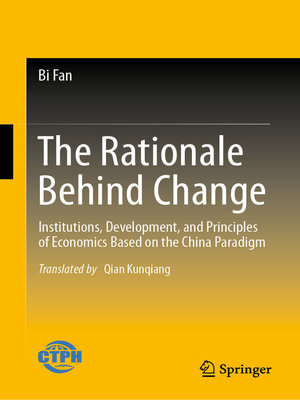The Rationale Behind Change
ebook ∣ Institutions, Development, and Principles of Economics Based on the China Paradigm
By Bi Fan

Sign up to save your library
With an OverDrive account, you can save your favorite libraries for at-a-glance information about availability. Find out more about OverDrive accounts.
Find this title in Libby, the library reading app by OverDrive.



Search for a digital library with this title
Title found at these libraries:
| Library Name | Distance |
|---|---|
| Loading... |
This book reviews the historical trajectory of economic studies on institutions and points out their limitations. It constructs a new framework for institutional analysis using transaction costs and transaction modules, proposes measuring transaction costs through time, elucidates the evolution of institutions through these costs, and incorporates the trade of rights between governments, markets, and enterprises into the realm of economic institutional research. The book argues that China's reform and opening-up began with a high transaction cost system. After competing between planned and market economies, China opted for a market economy system characterized by lower transaction costs, unraveling the "three binds" of ownership, resource allocation, and distribution methods with social systems, which can be deemed the "secret" to China's rapid economic development. The book also reveals that under the influence of path dependency, diminishing efficiency, and diversification laws, China's economic system has seen a spread of constraints from points to lines and surfaces, which are eroding reform dividends and posing constraints on development. Through examples in investment, land for construction, energy, and business environments, the book analyzes the changes in transaction costs brought about by institutional changes and their positive and negative impacts on development and proposes a vision and pathway for future reforms.







